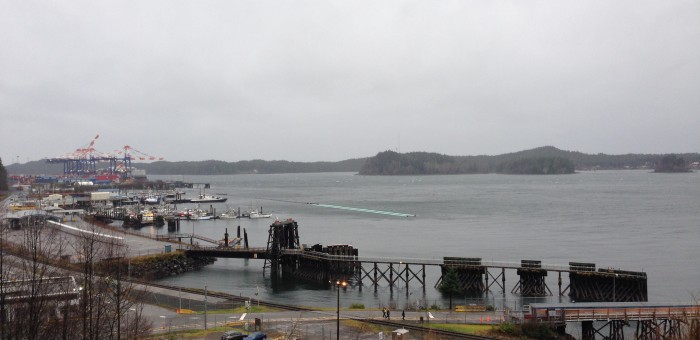What Leadership Looks Like on Thermal Coal Exports
By 2016, B.C. will have doubled its thermal coal exports. Thermal coal is largely sourced from outside of British Columbia and contributes very little to B.C. jobs. It is also one of the single largest contributors to global carbon emissions. In fact, the increase in B.C.’s thermal coal exports that we will see in the next two years alone will produce more carbon emissions than our entire province will in 2020, assuming we meet our legislated climate targets.
Last fall, the BC government joined the Pacific Coast Action Plan on Climate and Energy. Together with Washington, Oregon, and California, we committed to building a strategic alignment to combat climate change and promote clean energy. Our partners understand the threat of thermal coal and have taken practical steps to reduce their thermal coal exports. It’s time B.C. did the same.
State Leadership on a National Issue
Recognizing that they have limited power within their jurisdiction the leaders of California, Oregon and Washington are putting pressure on the American federal government to halt the expansion of coal exports. For instance, the Governors of Oregon and Washington have pressured the Obama administration to review the impact that leasing and exporting western coal has on climate change. A letter signed by both governors states: “We cannot seriously take the position in international and national policymaking that we are a leader in controlling greenhouse gas emissions without also examining how we will use and price the world’s largest proven coal reserves.” Furthermore the governors believe that “the decisions to continue and expand coal leasing from federal lands and authorize the export of that coal are likely to lead to long-term investments in coal generation in Asia, with air quality and climate impacts in the United States that dwarf those of almost any other action the federal government could take in the foreseeable future”.
Similarly, in 2012, the Assembly and Senate of the State of California passed a resolution urging the American President and Congress to “enact legislation to restrict the transshipment for waterborne export of coal for electricity generation to any nation that fails to adopt rules and regulations on the emissions of greenhouse gases”. This resolution easily passed in California.
Practical Steps that Make a Difference
Meanwhile, these states are also taking practical steps within their jurisdiction to halt the expansion of coal exports. For example, a few weeks ago the Port of Oakland board of commissioners in California unanimously rejected two proposals that would have seen the construction of a new coal export facility, citing environmental concerns, public health hazards, economic pitfalls, and public opposition. This is the most recent rejection of proposed coal export facilities on the west coast; three other coal export facilities have been rejected in Oregon and Washington over the last two years.
Another great example of leadership is found in Washington. There the Department of Ecology is now requiring, as part of its environmental impact statement on the proposed Gateway Pacific Terminal (a massive coal export facility), “an evaluation of impacts associated with the project from greenhouse gas emissions including those from terminal construction, terminal operation, rail and vessel traffic, and also the end-use coal combustion”. This is a holistic approach to environmental assessments as it recognizes that building the coal-export facility does not only have local environmental impacts but will also facilitate the increased use of burning coal in Asia, and thus increase the emissions going into our global atmosphere.
It’s Time for B.C. to Step Up
Elected officials in these U.S. states clearly understand the threat thermal coal poses to our climate and they are doing what they can to respond. Our provincial government could do the same. Instead we remain the only administration in this partnership that has not spoken out against the export of thermal coal. In fact, when I proposed a motion in February to limit the expansion of U.S.-sourced thermal coal exports it was voted down 73 to 1. This is shameful.
Exporting increased amounts of thermal coal is a direct threat to the progress we have made on addressing climate change. Local and state leaders in California, Oregon, and Washington recognize that exporting coal to be burned in Asia undermines their attempts to reduce their own emissions. The same is true for B.C. It’s time we follow their leadership and stop the expansion of thermal coal exports.
To understand more about how BC ports are expanding their coal-export operations and why I am opposed, please read my three previous blogs on the issue, found here, here and here.
If you are interested in my motion to reduce the expansion of thermal coal exports, you can read my speech here.
Comments are closed.




